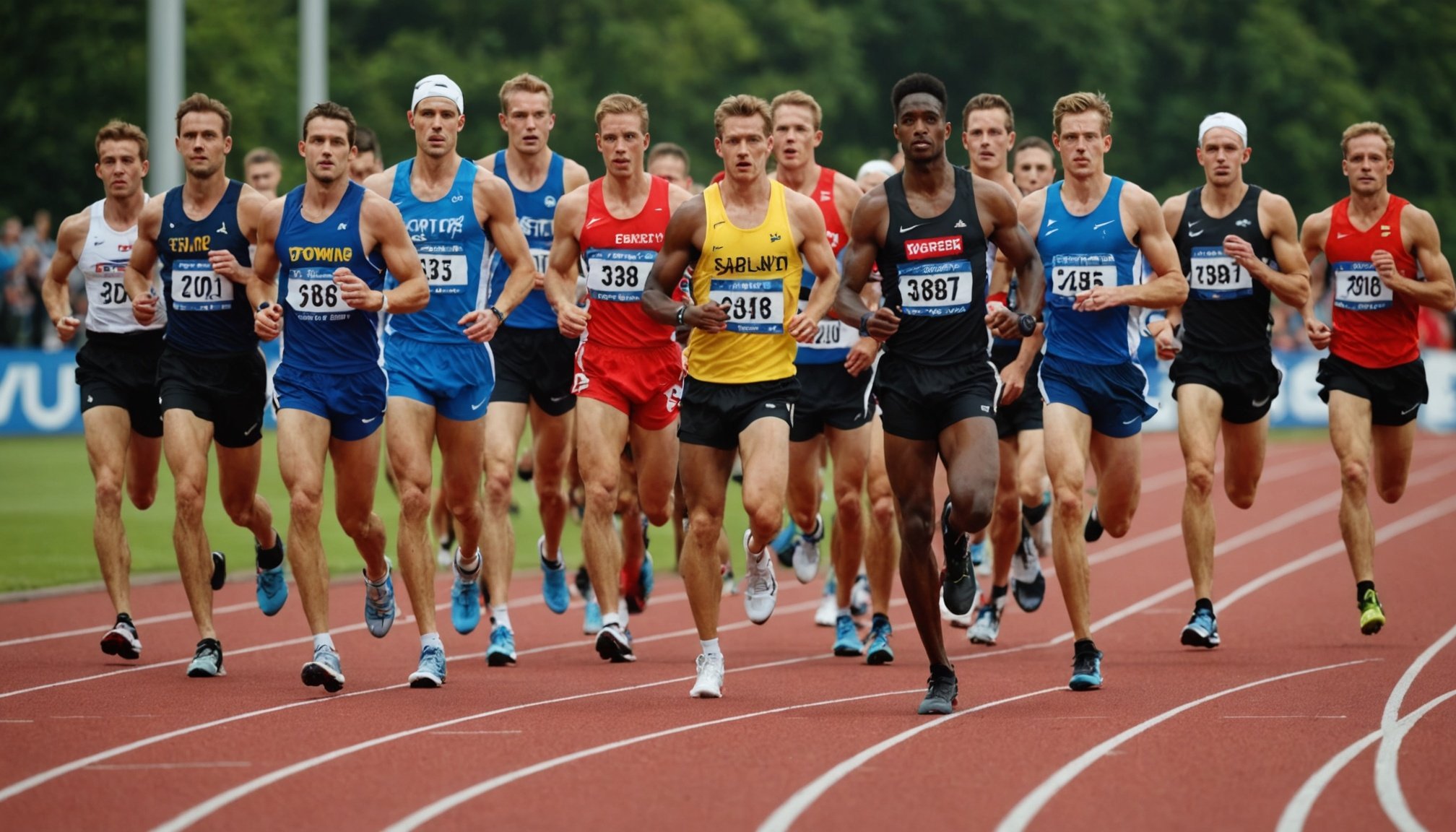In the world of sports, where athletes constantly strive for excellence and push the boundaries of human performance, the temptation to use prohibited substances or methods persists. With an international stage at stake, the competition is fierce, and the stakes are incredibly high. This brings us to the delicate issue of doping, a challenge not just for athletes but also for the organizations and authorities tasked with maintaining the integrity of sport. In the UK, the legal ramifications of doping violations are significant, backed by stringent policies and rules that aim to uphold fairness and transparency.
UK Anti-Doping (UKAD) is at the forefront of this battle, working under an umbrella of international and national frameworks to ensure athletes comply with the rules. This article delves into the legal consequences of doping in UK sports, offering an in-depth look at how violations are addressed, the policies in place, and the support systems available to athletes.
In the same genre : Elevating Performance: The Role of Mindfulness Techniques in UK Sports Teams
The Framework of Anti-Doping Policies
The fight against doping in sports is complex, demanding a robust framework to ensure the integrity of competitions and the health of athletes. In the UK, doping policies are meticulously designed to prevent and address violations while providing guidance to all involved parties. These policies are not mere suggestions but enforceable rules that dictate the conduct expected from athletes and supporting personnel.
UKAD operates under the World Anti-Doping Code, an internationally recognized set of guidelines that harmonize anti-doping efforts globally. This code serves as a foundation for national policies, ensuring consistency and cooperation across borders. Within this framework, policies are crafted to be relevant to the unique needs of UK sports, with a focus on testing, education, and enforcement.
Also to read : What impact does sports sponsorship have on the financial stability of UK teams?
Testing procedures are a cornerstone of anti-doping efforts, involving both in-competition and out-of-competition assessments. These tests are designed to catch prohibited substances, empower clean athletes, and deter potential violators. Furthermore, the policies emphasize the importance of education, providing resources to athletes, coaches, and support staff about the dangers and consequences of doping.
When violations occur, the ramifications are serious. Athletes found guilty of doping face suspensions, fines, and in severe cases, lifetime bans. Beyond personal consequences, violations tarnish reputations, impact careers, and can lead to legal battles that extend into the public sphere, involving government bodies and legal experts.
Legal Implications and the Role of UKAD
The legal implications of doping violations in UK sports are multifaceted, involving both sporting and civil jurisdictions. When an athlete is suspected or found guilty of doping, UKAD leads the charge in investigations and enforcements, armed with a comprehensive legal toolkit to combat these infractions.
UKAD’s mission is clear: to protect the integrity of sport by implementing the World Anti-Doping Code. This involves a careful balance of support and enforcement, providing athletes with resources to stay within the rules while holding violators accountable through rigorous legal processes.
Upon identifying a doping violation, UKAD may initiate provisional suspensions, pending further investigation. The next step often involves a hearing before an independent tribunal, where evidence is presented and scrutinized. Athletes have the right to legal representation and are given the opportunity to defend themselves against the allegations. Depending on the tribunal’s findings, the consequences can range from warnings to suspensions to lifetime bans from competition.
In addition to sporting sanctions, doping violations can also lead to civil repercussions. Athletes may face lawsuits, lose sponsorships, and suffer irreversible damage to their public image. These legal consequences underscore the importance of compliance and integrity in sports, reminding all participants of the responsibilities that come with the pursuit of excellence.
Government Involvement and Public Perception
The issue of doping extends beyond the realm of sports, becoming a topic of public interest and government concern. In the UK, the government plays a pivotal role in supporting anti-doping efforts, collaborating with UKAD and international bodies to uphold the integrity of sports. This collaboration involves policy development, funding, and public awareness initiatives to combat doping at all levels.
Through legislative measures, the UK government seeks to create an environment where clean sport can thrive. This includes allocating resources for testing, supporting educational programs, and promoting research into new detection methods. By investing in these areas, the government aims to prevent doping incidents and protect the health and well-being of athletes.
Public perception is another critical aspect of the doping discussion. The media often highlights high-profile cases, shaping public opinion and influencing policy decisions. Athletes found guilty of doping not only face legal penalties but also endure intense scrutiny from the public and media, which can have long-lasting effects on their careers.
The interplay between government action and public perception emphasizes the collective responsibility to ensure fair play in sports. It is a reminder of the broader societal impacts of doping, encouraging all stakeholders, from athletes to policymakers, to collaborate in fostering a culture of integrity and transparency.
Supporting Clean Athletes: Education and Resources
While the focus on doping violations often centers on enforcement and penalties, supporting clean athletes is equally crucial. Education and resources are integral to anti-doping efforts, providing athletes with the knowledge and tools to navigate the complexities of competition without resorting to prohibited methods.
Educational programs are designed to inform athletes about the dangers of doping, the substances and methods on the prohibited list, and the potential consequences of violations. By equipping athletes with this information, organizations aim to instill a sense of personal responsibility and ethical conduct.
Resources extend beyond education, offering support systems for athletes who may be struggling with the pressures of high-performance sport. Counseling services, peer support, and access to nutritional and psychological guidance are available, encouraging athletes to prioritize their health and well-being over short-term gains.
UKAD and other bodies also provide platforms for dialogue and transparency, fostering an environment where athletes can voice concerns and seek advice. These efforts contribute to a culture of trust and collaboration, reinforcing the idea that clean sport is a shared goal that benefits everyone involved.
In conclusion, the battle against doping in UK sports is a comprehensive, multifaceted effort, demanding the cooperation of athletes, organizations, and the government. By understanding the legal ramifications and supporting clean athletes, we can work towards a future where sport is celebrated for its integrity and fair play.
The battle against doping in UK sports is not just a legal challenge but a societal one, requiring a unified approach from athletes, organizations, and policymakers. The legal ramifications for doping violations are severe, with consequences that extend beyond the playing field to impact personal and professional lives. By upholding stringent policies and fostering a culture of transparency and integrity, we can create an environment where clean sport thrives.
As we look to the future, the commitment to fair play and ethical conduct remains paramount. Through collaboration and education, we can support athletes in their pursuit of excellence while safeguarding the essence of sport. Together, we can champion the values of integrity and transparency, ensuring that competition remains a testament to human will and spirit, unmarred by illicit practices.











